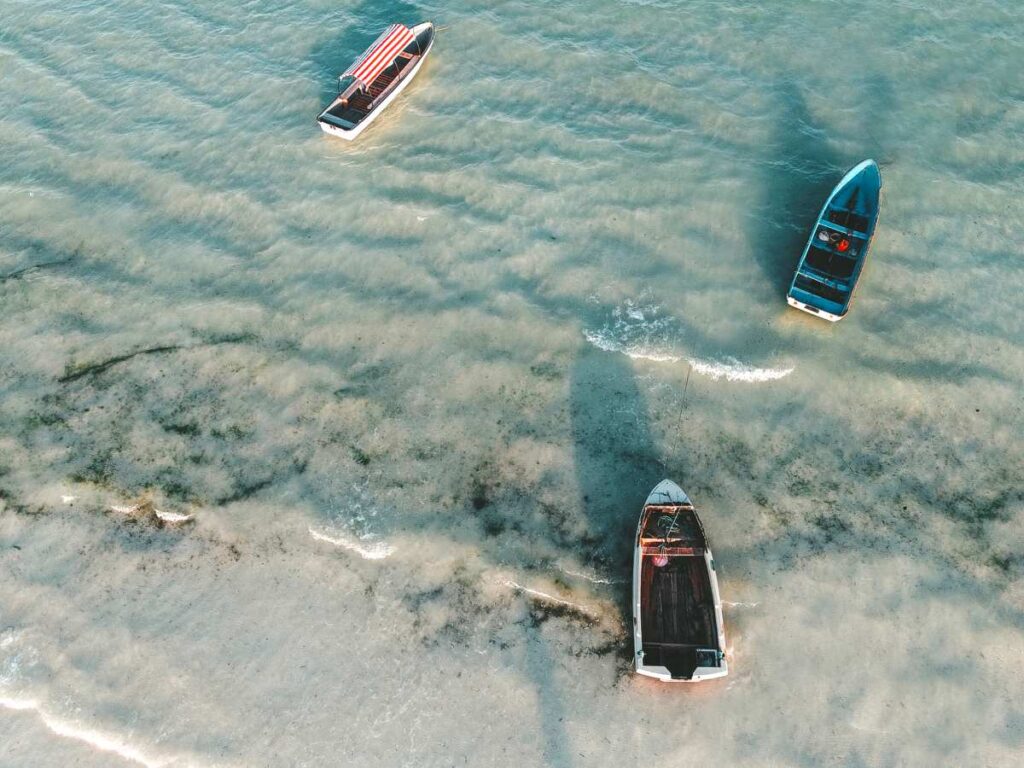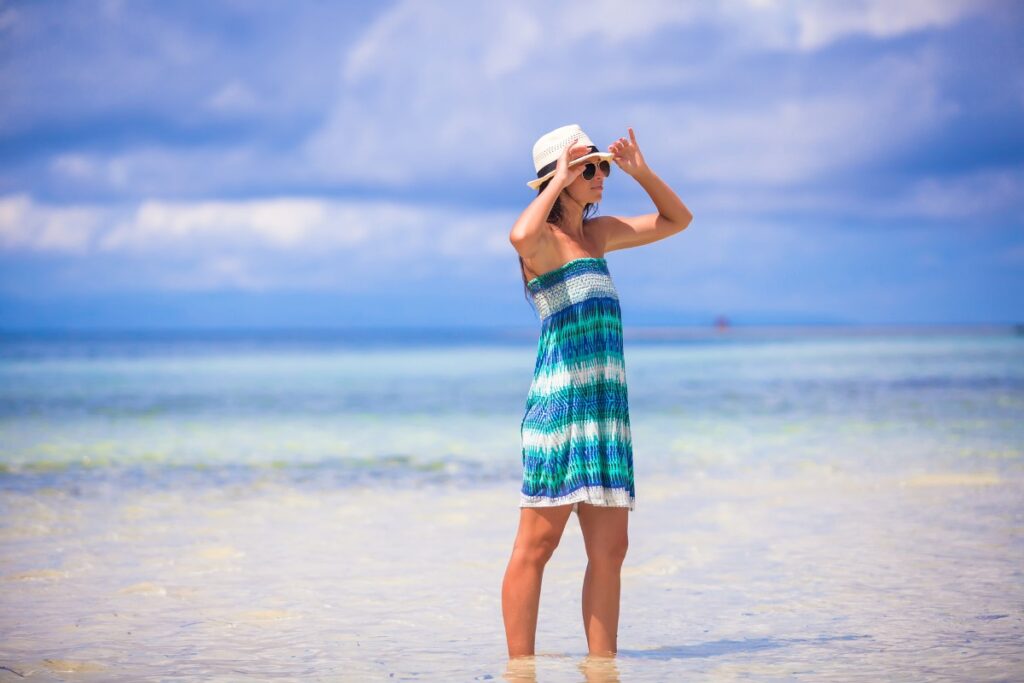
There’s something almost mythical about Zanzibar. Even the name sounds like an invitation – warm turquoise waters, spice-scented air, and white-sand beaches that look like they’ve been edited by nature itself. But before booking flights or scrolling through endless resort photos, most travellers ask the same question: is Zanzibar safe? It’s a fair one – and the answer, in short, is yes. But let’s unpack that properly, because “safe” means different things depending on who you are, what you plan to do, and how you travel.
The General Safety Picture
Zanzibar, part of Tanzania, is considered one of East Africa’s safest tourist destinations. Crime rates are low compared to many popular tropical locations, and the local culture is famously welcoming. Tourism is the island’s lifeblood, so visitors are treated with warmth and respect. The vast majority of trips go off without a single hitch. That said, it’s still a developing region, and common-sense precautions go a long way. Petty theft can happen, especially in crowded areas like Stone Town, but violent crime against tourists is extremely rare. The biggest “danger” most visitors face is probably sunburn or a hangover from too many sunset cocktails.
Is Zanzibar Safe for Tourists Specifically?
Yes – Zanzibar is absolutely safe for tourists. Solo travellers, honeymooners, and families all visit comfortably year-round. The island’s tourism infrastructure is well established, and locals are accustomed to visitors from all over the world. Women can travel independently, though dressing modestly (especially away from the beach) is respectful and tends to draw less attention. Zanzibar is predominantly Muslim, and while it’s relaxed compared to some regions, covering shoulders and knees when in town or visiting cultural sites is just polite.
We’ve spoken with countless travellers who were initially anxious, then returned home saying they felt safer in Zanzibar than in parts of Europe or North America. That said, don’t wander alone at night down unlit alleyways in Stone Town (you wouldn’t at home either), and keep valuables out of sight.
Common Scams and How to Avoid Them
Let’s be honest – where there are tourists, there are scams. Zanzibar’s aren’t particularly dangerous, but they exist. The most common ones involve taxi prices, fake tours, or people pretending to be “official guides.” Always confirm prices upfront, preferably through your hotel or a registered tour operator. And if someone seems overly pushy or offers a deal that sounds too good to be true – it probably is.
One small but frequent annoyance is “beach boys,” locals who approach tourists on the sand trying to sell tours, shells, or souvenirs. Most are friendly, some are persistent. A polite “no thank you” usually does the trick. Don’t feel unsafe – they’re part of the island’s rhythm – but be firm.
Health and Hygiene: The Practical Side of Safety
When people ask how safe is Zanzibar, they often mean health-wise. The basics: drink bottled water, wash your hands often, and use insect repellent. Mosquitoes are around, and while Zanzibar was declared malaria-free in recent years, many travellers still take precautions. It’s worth consulting your GP before your trip for recommended vaccines (typhoid, hepatitis A, etc.).
Food hygiene in hotels and established restaurants is generally excellent. Street food can be incredible – try the Zanzibari pizza or sugarcane juice at Forodhani Night Market – but use your judgment. If it’s busy with locals, it’s usually a good sign.
Medical facilities on the island are improving but limited. For anything serious, evacuation to mainland Tanzania or Nairobi may be necessary. That’s why travel insurance isn’t optional – it’s essential.
Safety for Women Travellers

Zanzibar is one of the safest African destinations for solo female travellers. Still, cultural awareness makes a difference. Modest clothing in public spaces earns you goodwill; bikinis and crop tops are fine on the beach but not in Stone Town. Locals are friendly and curious, but overt flirting is uncommon, and catcalling is rare compared to many tourist hubs.
If you’re travelling alone, stay in reputable accommodation, especially in quieter coastal areas where beaches can be deserted after dark. Most hotels offer staff escorts if you’re walking at night. Again, it’s not about paranoia – it’s just practical safety.
Political and Social Stability
Zanzibar is semi-autonomous but politically stable. Elections occasionally bring protests or rallies, especially around Stone Town, but they’re localised and peaceful. Visitors are rarely affected. If something does occur, hotels and tour companies are quick to advise guests. Tanzania’s government values tourism far too much to allow unrest to disrupt it for long.
LGBTQ+ Travellers
This is where nuance matters. While Zanzibar is welcoming, Tanzania’s laws regarding same-sex relationships are conservative. Public displays of affection (even among heterosexual couples) are frowned upon in rural areas, so discretion is advised. Many resorts and boutique hotels, however, are inclusive and friendly. Zanzibar’s hospitality industry is global in outlook – it’s about respect and mutual understanding rather than judgment.
Nightlife and Beach Safety
Zanzibar isn’t known for wild nightlife, but that’s part of its charm. You’ll find chilled beach bars in Nungwi or Kendwa, and live music in Stone Town. It’s all laid-back, not reckless. Drink spiking is extremely rare, though the usual travel wisdom applies: keep an eye on your drink, don’t leave with strangers, and know your limits in the heat.
Swimming? Do it – but be smart. Tides in Zanzibar are dramatic, and currents can be stronger than they look. Swim during daylight, ideally near your resort, and heed local advice about jellyfish season (rare but possible). If you go snorkelling or diving, stick to certified operators.
Natural and Environmental Safety
Zanzibar’s wildlife is generally harmless. There are no dangerous animals to worry about (no lions here, promise), though you’ll see the occasional monkey trying to steal fruit or sunglasses. Marine life is beautiful and mostly safe – though touching coral or certain jellyfish is, obviously, not advised.
The sun, however, is relentless. The UV index here can be brutal, even on cloudy days. Wear SPF 50, a hat, and stay hydrated. Heat exhaustion catches people off guard faster than anything else.
Is Zanzibar Safe for Families?
Absolutely. Families love Zanzibar because it’s calm, clean, and full of child-friendly resorts. Beaches like Paje and Nungwi have gentle shallows perfect for kids, and most hotels offer babysitting or family suites. The only challenge? The heat. It’s intense around midday, so plan beach or outdoor time early morning or late afternoon.
Final Thoughts: Is Zanzibar Safe?
Yes – overwhelmingly so. Zanzibar is one of those rare destinations where you can relax completely without dropping your guard entirely. The people are kind, the atmosphere is gentle, and the risks are mostly the kind you can plan for with a little awareness. You’ll find locals eager to help, stunning natural beauty, and a sense of tranquillity that’s hard to describe until you feel it.
If you respect the culture, travel smart, and use common sense, your only regret will be not staying longer.
And when you’re ready to explore those white-sand beaches of Tanzania for yourself, check out our guide packed with important Zanzibar travel information – from top resorts to secret snorkelling spots.

